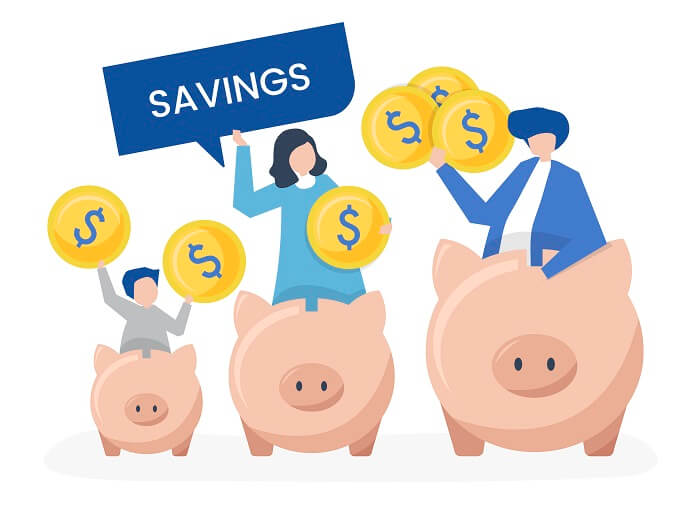Things to Know: What Is Personal Finance and Why Is It Important?
Personal finance refers to the management of one's financial resources, including income, expenses, savings, investments, and debt. It involves making informed decisions and taking appropriate actions to optimize financial well-being. In today's complex world, understanding personal finance has become increasingly crucial for individuals seeking to build a stronger financial future.
The Importance of Personal Finance
Personal finance plays a vital role in everyone's life, regardless of age, income level, or occupation. It empowers individuals to make sound financial decisions, achieve their goals, and secure their financial well-being. Let's explore why personal finance is important and how it can positively impact your life.
Why is Personal Finance Important?
Personal finance is important because it provides financial stability and security. By managing your finances effectively, you can avoid financial hardships, unexpected expenses, and debt traps. It enables you to take control of your financial future and achieve long-term financial goals, such as homeownership, retirement, or funding your children's education.
Why Personal Finance Education is Important?
Personal finance education is crucial because it equips individuals with the knowledge and skills necessary to navigate the complex world of finance. It helps you understand concepts like budgeting, saving, investing, and debt management. With proper financial education, you can make informed decisions, avoid financial pitfalls, and optimize your financial well-being.
Key Principles of Personal Finance
To effectively manage your personal finances, it is essential to follow some key principles. Let's explore these principles and understand how they contribute to financial success.
Budgeting and Expense Management
Creating and sticking to a budget is a fundamental principle of personal finance. A budget helps you allocate your income towards different expenses, prioritize your financial goals, and track your spending. By managing your expenses efficiently, you can avoid overspending, reduce unnecessary costs, and save more money for the future.
Saving and Investing
Saving and investing are crucial components of personal finance. Saving allows you to build an emergency fund, which acts as a safety net during unexpected events or financial crises. Investing helps your money grow over time through various investment vehicles, such as stocks, bonds, mutual funds, or real estate. By saving and investing wisely, you can generate passive income, achieve financial growth, and work towards achieving your long-term financial goals.
Debt Management
Effective debt management is another vital aspect of personal finance. It involves understanding different types of debt, such as credit card debt, student loans, or mortgages, and developing strategies to repay them efficiently. By managing your debt responsibly, you can avoid excessive interest payments, improve your credit score, and maintain a healthy financial profile.
The Benefits of Financial Literacy
Financial literacy refers to the knowledge and understanding of financial concepts and principles. Developing financial literacy has several benefits that can positively impact your life.
Empowerment and Independence
Financial literacy empowers individuals to take control of their financial decisions. With knowledge about personal finance, you become less dependent on financial advisors or institutions and gain the confidence to make informed choices that align with your goals and values.
Stress Reduction
Financial stress can significantly impact your mental and emotional well-being. By improving your financial literacy, you can better manage your finances, reduce financial stress, and enjoy peace of mind. Understanding concepts like budgeting, saving, and investing can alleviate anxiety related to money matters.
Goal Achievement
Financial literacy helps you set and achieve your financial goals. Whether it's saving for a dream vacation, buying a house, or retiring comfortably, having a strong understanding of personal finance allows you to develop strategies and make decisions that support your goals. Financial literacy provides you with the tools and knowledge to plan for the future effectively.
Steps to Improve Personal Finance
Now that we understand the importance of personal finance and financial literacy, let's explore some practical steps you can take to improve your personal finance:
Assessing the Current Financial Situation
Start by evaluating your current financial situation. Take stock of your income, expenses, assets, and liabilities. Understanding where you stand financially will help you identify areas for improvement and develop a plan of action.
Setting Financial Goals
Define clear and achievable financial goals. Whether it's paying off debt, saving for retirement, or building an emergency fund, setting specific goals provides a sense of direction and motivation.
Creating a Budget
Develop a budget that aligns with your financial goals. Track your income and expenses, categorize your spending, and identify areas where you can cut back or save more. A budget acts as a roadmap for your financial journey.
Saving and Investing Strategies
Implement saving and investing strategies that suit your goals and risk tolerance. Automate your savings, consider different investment options, and diversify your portfolio. Remember, starting early and staying consistent can have a significant impact on your long-term financial success.
Managing Debt
Create a plan to manage your debt effectively. Prioritize high-interest debts, explore options for consolidation or refinancing, and make consistent payments to reduce your overall debt burden.
Common Mistakes to Avoid
While working on improving your personal finance, it's essential to avoid common mistakes that can hinder your progress. Here are a few pitfalls to watch out for:
Neglecting an Emergency Fund
An emergency fund acts as a financial safety net. Failing to prioritize an emergency fund can leave you vulnerable to unexpected expenses or financial setbacks. Aim to build an emergency fund that can cover at least three to six months' worth of living expenses.
Overspending and Impulse Buying
Impulse buying and excessive spending can sabotage your financial goals. Practice mindful spending, differentiate between needs and wants, and develop healthy financial habits that prioritize long-term financial well-being over short-term gratification.
Ignoring Retirement Planning
Retirement may seem distant, but it's crucial to start planning and saving early. Ignoring retirement planning can leave you with insufficient funds in your golden years. Take advantage of retirement accounts like 401(k)s or IRAs and explore other investment options to secure your retirement future.
Conclusion
Personal finance is a powerful tool that can shape your financial future and provide stability, security, and independence. By understanding the importance of personal finance, embracing financial literacy, and implementing effective strategies, you can take control of your financial well-being.
Remember, personal finance is a lifelong journey that requires continuous learning, adaptation, and discipline. Start by assessing your current financial situation, setting clear goals, and creating a budget that aligns with your aspirations. Save and invest wisely, manage your debt responsibly, and avoid common financial mistakes.
By prioritizing personal finance and committing to financial literacy, you can build a stronger financial future for yourself and your loved ones. Take the first step today and embark on a journey towards financial well-being.
FAQs
1.What are the key principles of personal finance?
The key principles of personal finance include budgeting, saving and investing, and debt management.
2.How can financial literacy benefit me?
Financial literacy can empower you to make sound financial decisions, reduce stress, and achieve your financial goals.
3.What are some common mistakes to avoid in personal finance?
Common mistakes to avoid include neglecting an emergency fund, overspending, and ignoring retirement planning.
4.How can I improve my personal finance?
You can improve your personal finance by assessing your current situation, setting financial goals, creating a budget, saving and investing, and managing debt responsibly.
Here are a few references related to personal finance that you can explore for further information:
Guttman, I., & Kuznetsov, A. (2020). The Importance of Personal Finance Education in the United States. Journal of Education and Learning, 9(3), 170-176.
Groppel, J. L. (2019). Personal Finance: An Encyclopedia of Modern Money Management. ABC-CLIO.
Ramsey, D. (2017). The Total Money Makeover: A Proven Plan for Financial Fitness. Thomas Nelson.
Belsky, G., & Gilovich, T. (2018). Why Smart People Make Big Money Mistakes and How to Correct Them: Lessons from the New Science of Behavioral Economics. Simon and Schuster.
Kobliner, B. (2017). Make Your Kid a Money Genius (Even If You're Not): A Parents' Guide for Kids 3 to 23. Simon and Schuster.
Please note that these references provide valuable insights into personal finance and can serve as additional resources for your understanding of the topic.

